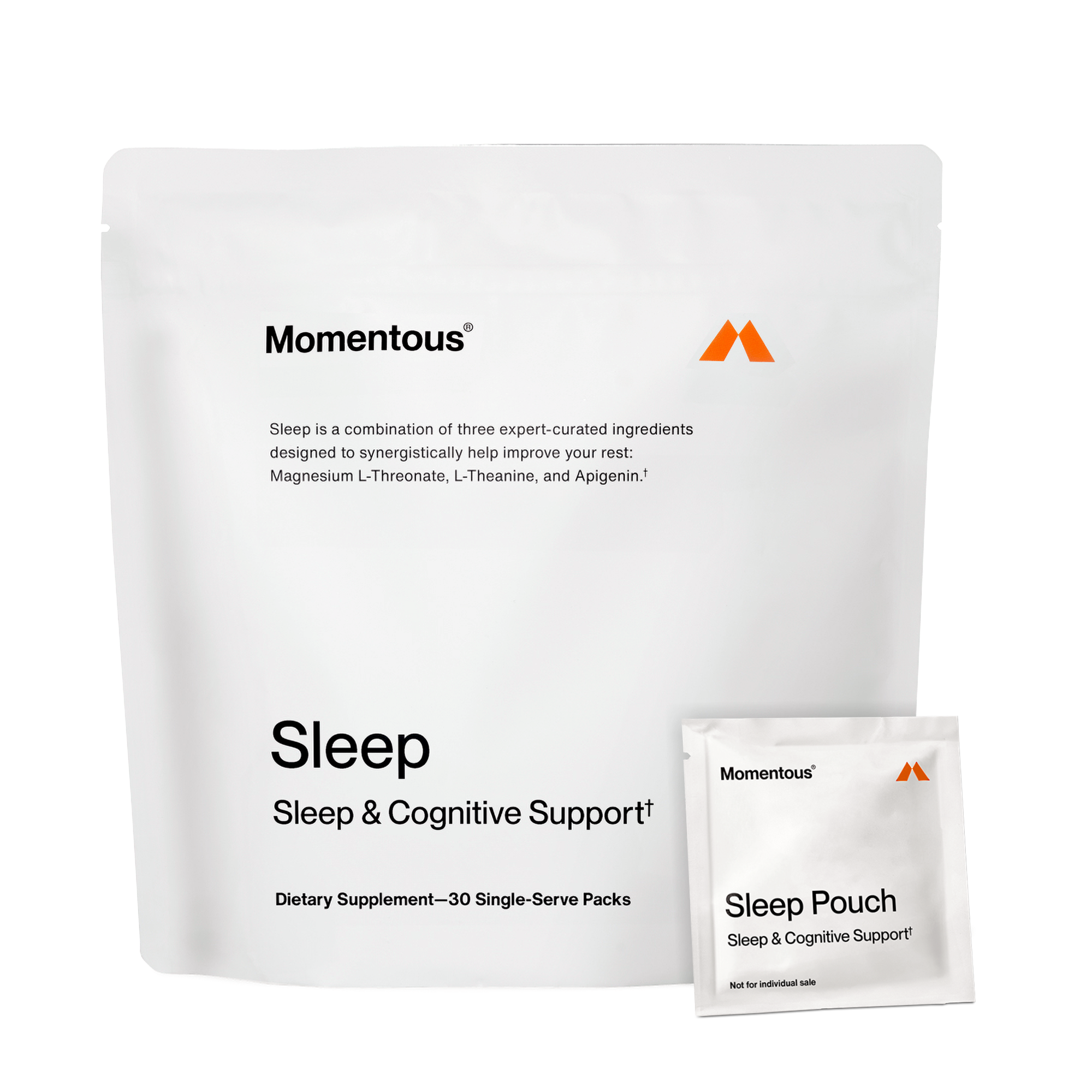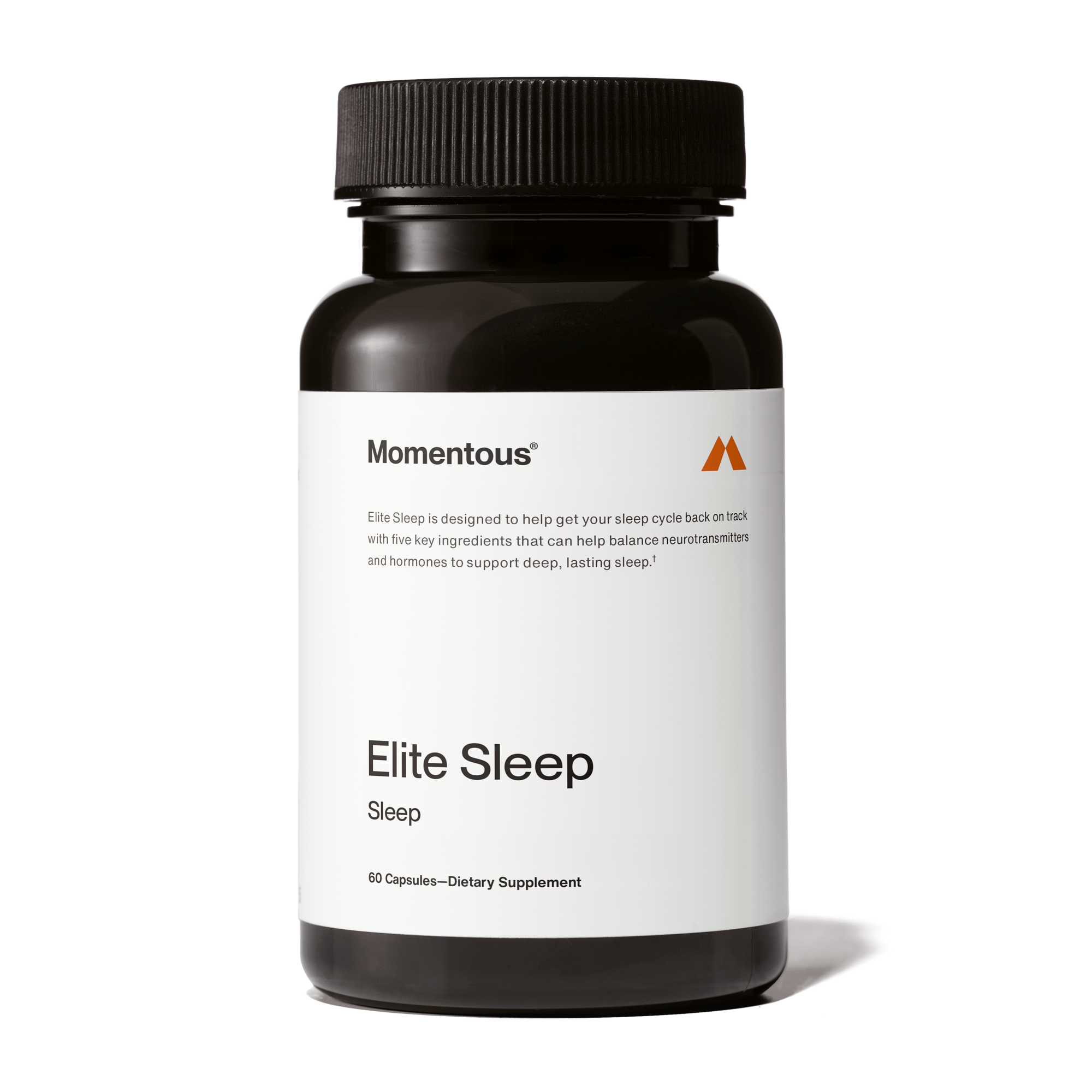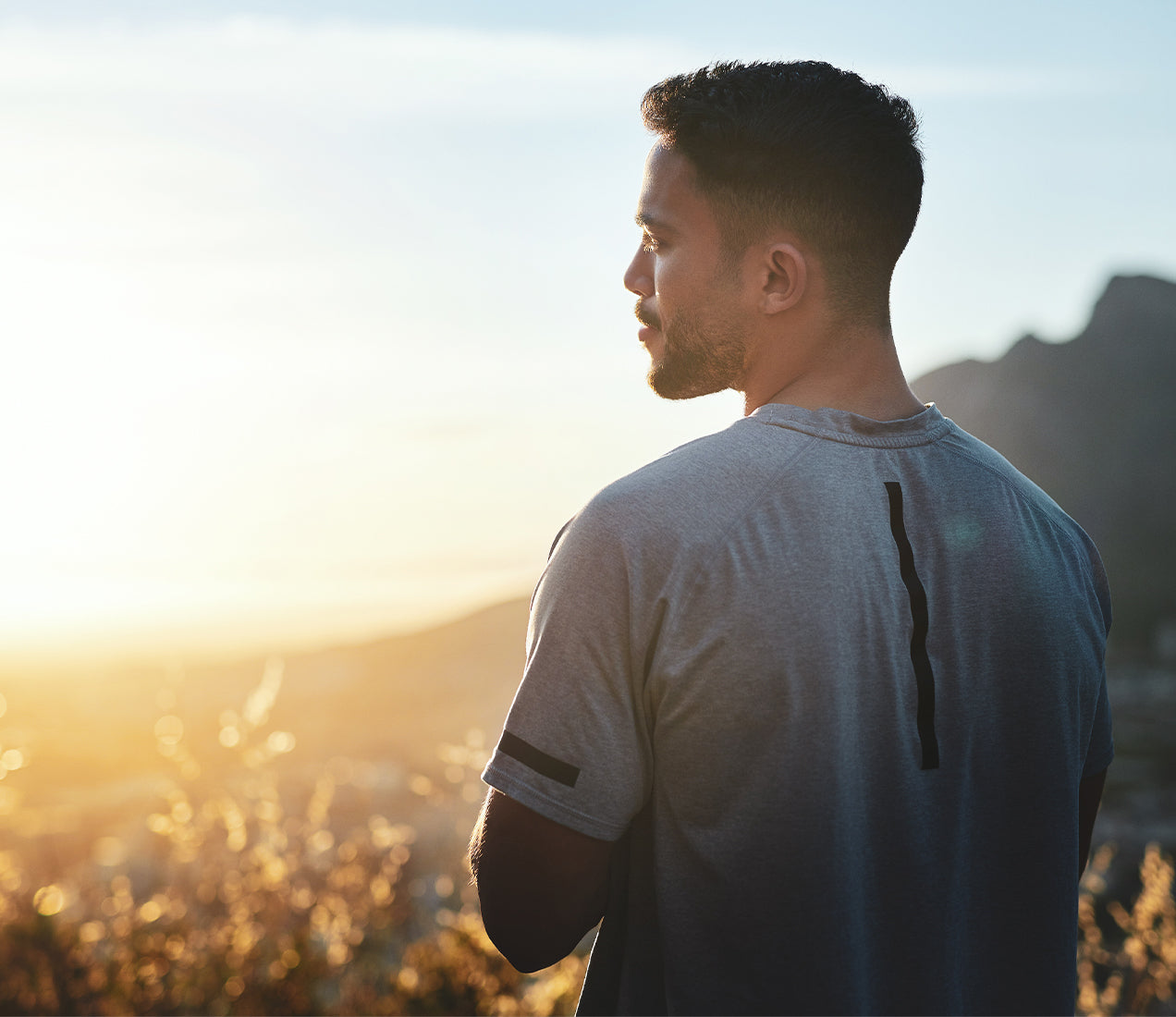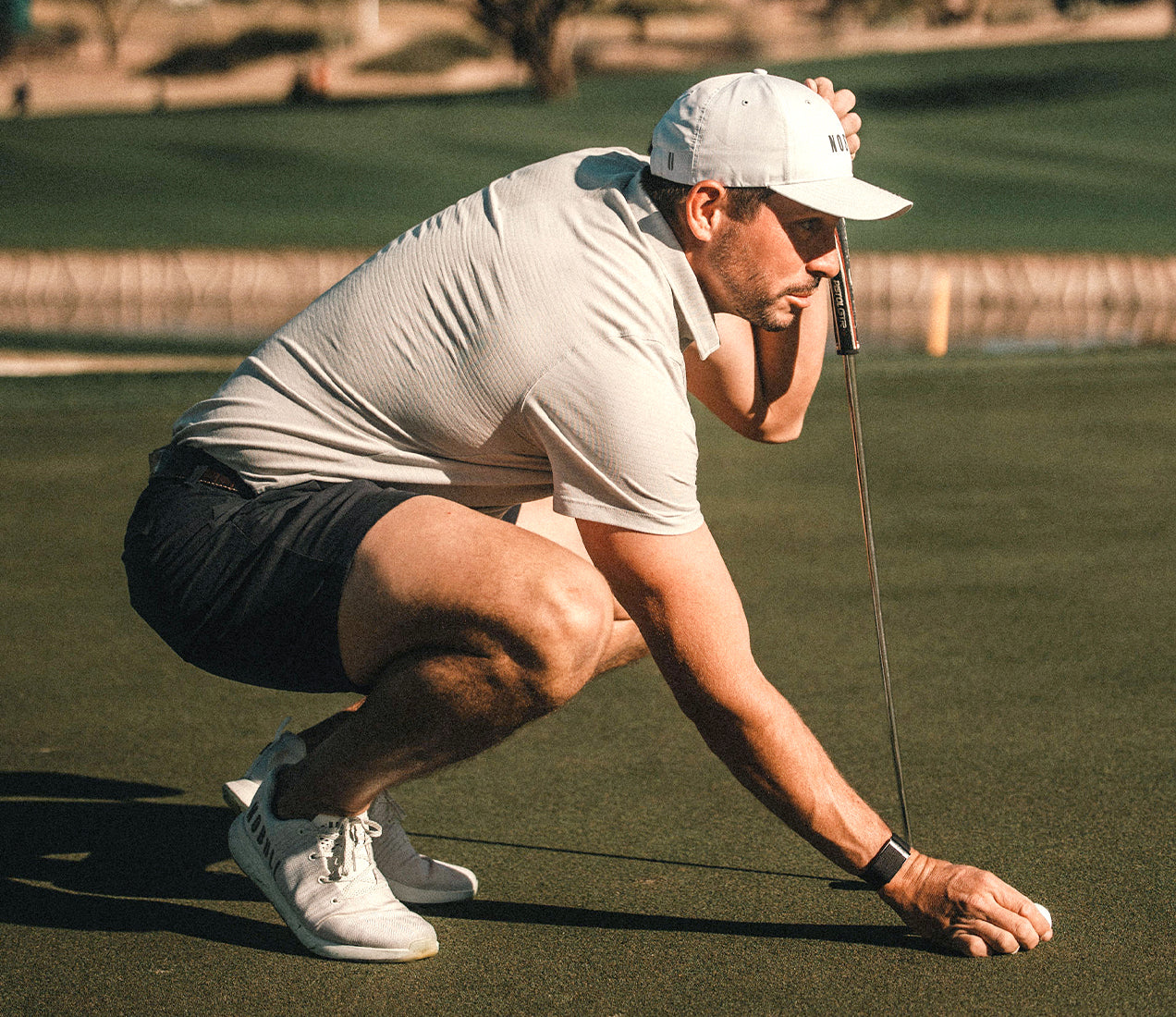Science-backed combination of Magnesium L-Threonate, L-Theanine + Apigenin to help optimize your sleep
Four-ingredient formula to help you fall asleep + stay asleep
Melatonin + calming botanicals to support restful, restorative sleep
Did you know that we spend about one-third of our lives asleep? Sleep is vital to our overall health and well-being, yet many of us don't prioritize it as much as we should. In honor of Sleep Week, an annual event by the National Sleep Foundation to promote better sleep health, we've put together this short guide to help you understand the importance of healthy sleep habits and how to optimize your sleep for a healthier, happier life. We've got you covered, from sleep science to fascinating facts. So, get ready to tune-in to turning-in and make the most out of your slumber with Sleep 101.
The Basics of Sleep
Let's start with the basics: Why do we sleep? It's a question that has given scientists more than a few sleepless nights. While we don't yet have all the answers, we do know that sleep is incredibly important for our overall health and well-being. Sleep affects almost every type of tissue and system in the body – from the brain, heart, and lungs to metabolism, immune function, mood, and disease resistance.
One theory of why we sleep is that it helps our bodies rest and repair themselves (1). During sleep, our body goes through a process of regeneration and recovery that helps us feel refreshed and ready to take on the day. Another potential theory is that sleep helps with memory consolidation and learning (2), allowing us to retain important information and form stronger connections in our brains.
One thing scientists know for sure is that getting quality sleep has enormous benefits for our physical and mental health. When we sleep, our body produces growth hormones crucial for tissue repair and muscle growth. Also, REM sleep helps regulate our emotions and creativity, while deep sleep helps support our immune system and regulates our hormones.
Factors Affecting Our Sleep-Wake Cycle
Our sleep-wake cycle is influenced by our circadian rhythm, homeostatic sleep drive, and external factors like light exposure and physical activity. The circadian rhythm is our internal clock that tells us when to feel awake and when to feel sleepy. At the same time, the homeostatic sleep drive, essentially our urge to sleep, increases as we stay awake. The homeostatic sleep drive is also known as sleep pressure. External factors like light exposure (3), physical activity (4), and temperature can also affect our sleep-wake cycle. Bright light can suppress melatonin production, making it harder to sleep. And, while physical activity can promote sleep, it should generally be avoided too close to bedtime. When we know what affects our sleep-wake cycle, we can develop habits that support our natural sleep rhythm and improve our sleep quality.
Determining Your Chronotype
Our natural circadian rhythms determine whether we're early birds or night owls known as chronotypes. Different types of sleepers include morning types, evening types, and intermediate types. Understanding your chronotype can help you optimize your sleep and improve your productivity. For example, morning types may want to schedule their most important tasks in the morning, while evening types may want to wait until the PM to finish important tasks. Regardless of your chronotype, developing healthy sleep habits supporting your natural sleep-wake cycle is essential. This includes sticking to a regular sleep schedule, avoiding screens before bedtime, and creating a comfortable sleep environment with lots of darkness and little noise. Optimizing your sleep and daily activities, according to your chronotype, can help you maximize your productivity.
Stages of Sleep: NREM and REM
There are two main types of sleep: non-rapid eye movement sleep (NREM) and rapid eye movement sleep (REM). NREM sleep can be broken down into four stages based on the depth of sleep. In stage one, we're in a light sleep and can be easily awakened. In stage two, our body temperature and heart rate decrease as we become more relaxed. In stage three, we enter a deep sleep where waking up is harder. In stage four, we sleep even deeper, and our brain waves slow down. REM sleep is characterized by rapid eye movements, increased brain activity, and dreaming. This stage is important for processing emotions and consolidating memories. Getting enough NREM and REM sleep is crucial for maintaining optimal physical and mental health.
The Full Importance of Sleep
Getting enough quality sleep is essential for our physical and mental health. While we all know that good sleep can help us feel better, have more energy, and think more clearly, not getting enough sleep can make it harder for us to function at our best. It can lead to some unpleasant consequences, such as feeling moody, stressed, or even having trouble making decisions. There are natural supplements, like our Sleep Pack, that can support healthy sleep and recovery. By prioritizing healthy sleep habits and seeking support when necessary, you can experience the full benefits of quality sleep and lead a healthier, happier life.
Sleep Fun Facts
-
Did you know that some people can sleep with their eyes open? This is a rare condition called nocturnal lagophthalmos.
-
The record for the longest period without sleep is 11 days, set by Randy Gardner in 1964.
-
While it's commonly thought that we dream in color, a small percentage of people actually dream in black and white.
-
Newborns can sleep up to 17 hours a day, while adults typically need between 7 and 9 hours of sleep per night.
-
The sensation of falling when half asleep and jerking yourself awake is called 'hypnic jerks'
-
It's thought that up to 15% of the population are sleepwalkers.
----
-
Adam, K., & Oswald, I. (1977). Sleep is for tissue restoration. Journal of the Royal College of Physicians of London, 11(4), 376–388.
-
Born, J., & Wilhelm, I. (2012). System consolidation of memory during sleep. Psychological Research, 76(2), 192–203.
-
Duffy, J. F., Kronauer, R. E., & Czeisler, C. A. (1996). Phase-shifting human circadian rhythms: influence of sleep timing, social contact and light exposure. The Journal of Physiology, 495(1), 289–297.
-
Dolezal, B. A., Neufeld, E. V., Boland, D. M., Martin, J. L., & Cooper, C. B. (2017). Interrelationship between sleep and exercise: A systematic review. Advances in Preventive Medicine, 2017, 1–14.















